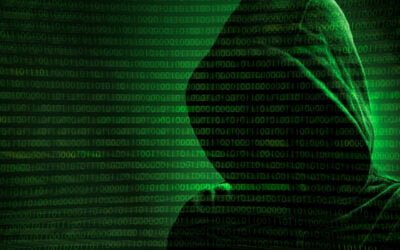Have you ever wondered about the legal status of hackers and the legality of hacking? In today’s digital age, hacking has become a prevalent issue, but the laws surrounding it can be complex and confusing. In this article, we will delve into the laws and regulations regarding hacking in the United States, shedding light on the legal status of hackers and the consequences they may face.
Key Takeaways:
- Hacking laws and regulations can vary from country to country.
- The United States has specific legislation, such as the Computer Fraud and Abuse Act (CFAA), that deals with hacking offenses.
- Unauthorized access to computer systems and illegal activities like data theft and disruption of computer networks are prohibited under the CFAA.
- Ethical hacking, conducted with permission, is legal and serves as a crucial tool for cybersecurity.
- International cooperation is essential to combat hacking on a global scale.
Understanding Cybercrime: How Hackers Operate
In order to comprehend the legal status of hackers, it is imperative to have a clear understanding of how they operate in the realm of cybercrime. Hackers employ a variety of methods to gain unauthorized access to information and exploit vulnerabilities in computer systems.
Phishing emails, computer viruses, and exploiting system vulnerabilities are some of the common techniques used by hackers. They manipulate unsuspecting individuals through deceptive emails or messages, tricking them into revealing sensitive information such as passwords or credit card details.
Hackers are motivated by various factors, including financial gain, political agendas, or a desire for power. Some hackers engage in cybercriminal activities for personal profit, such as stealing and selling valuable data or conducting ransomware attacks. Others may target specific organizations or government bodies to disrupt operations or gain sensitive information for political purposes.
To effectively combat cybercrime, it is crucial to recognize the different types of hacking and the individuals behind these activities. By understanding the motivations and methods employed by hackers, law enforcement agencies, organizations, and individuals can better protect themselves against cyber threats and take appropriate legal action.
Hacker Motivations
- Financial gain
- Political agendas
- Desire for power
Types of Hacking
- Phishing
- Malware attacks
- Denial of Service (DoS) attacks
- SQL injection
- Wireless hacking
Characteristics of Cybercriminals
| Characteristic | Description |
|---|---|
| Adaptability | Cybercriminals are constantly evolving their techniques to bypass security measures. |
| Technological proficiency | They possess advanced knowledge of computer systems, networks, and programming languages. |
| Anonymity | Cybercriminals often hide their identities using various methods to avoid detection and arrest. |
| Collaboration | They may work together in organized groups or forums to share knowledge and collaborate on attacks. |
The Legal Framework: Laws and Regulations on Hacking

Hacking is a serious offense, and the United States has implemented a legal framework to address this issue. The laws and regulations surrounding hacking, computer crimes, and cybercrime are designed to protect individuals, organizations, and computer systems from unauthorized access, data theft, and other illegal activities. Understanding these laws is crucial to comprehend the legal consequences hackers may face.
Hacking Laws: Computer Fraud and Abuse Act (CFAA)
The primary legislation in the United States that deals with hacking offenses is the Computer Fraud and Abuse Act (CFAA). Enacted in 1986, the CFAA prohibits unauthorized access to computer systems, as well as activities such as data theft, identity theft, and disruption of computer networks. The CFAA defines different offenses and penalties based on the severity of the crime, ranging from misdemeanors to felonies.
Hacker Penalties and Legal Consequences
Those found guilty of hacking or other related cybercrimes can face severe penalties under the law. Depending on the offense, penalties may include fines, imprisonment, or both. The severity of the penalties is often determined by factors such as the extent of the damage caused, the value of the stolen information, and the defendant’s criminal history. It is important to note that hacking attempts, even unsuccessful ones, can still result in legal consequences.
| Offense | Possible Penalties |
|---|---|
| Unauthorized Access to a Computer System | Fines, imprisonment, or both |
| Data Theft | Fines, imprisonment, or both |
| Identity Theft | Fines, imprisonment, or both |
| Disruption of Computer Networks | Fines, imprisonment, or both |
“Hacking attempts, even unsuccessful ones, can still result in legal consequences.”
The legal consequences of hacking extend beyond criminal charges. Individuals found guilty of hacking offenses may also face civil lawsuits filed by the affected parties. These lawsuits can result in significant financial damages awarded to the victims. Furthermore, a criminal record for hacking can have long-term consequences, impacting employment opportunities and personal reputation.
It is vital for individuals and organizations to understand the legal framework surrounding hacking to deter individuals from engaging in these activities and to ensure proper cybersecurity measures are in place. By adhering to the law, we can protect our digital landscape and prevent potential harm caused by hackers.
Ethical Hacking and the Law
When it comes to hacking, the term “ethical” might seem contradictory. However, ethical hacking, also known as white hat hacking, plays a crucial role in cybersecurity. As a cybersecurity professional, my focus is on protecting computer systems and networks from unauthorized access and potential vulnerabilities. Ethical hacking involves using my skills and knowledge to uncover potential weaknesses in systems and help organizations strengthen their security measures.
Ethical hackers work hand in hand with organizations, gaining permission to test their systems in controlled environments. This collaboration allows us to identify and address potential security flaws before malicious hackers can exploit them. By taking a proactive approach to cybersecurity, ethical hackers contribute to the overall defense against cyber threats.
To ensure that ethical hackers adhere to legal and ethical standards, various certifications and guidelines exist. These certifications validate our expertise and demonstrate our commitment to operating within the boundaries of the law. Additionally, they provide assurance to organizations that ethical hackers possess the necessary skills and knowledge to safeguard their systems effectively.
The Role of Ethical Hacking in Cybersecurity
Ethical hacking serves as an essential component of a comprehensive cybersecurity strategy. By simulating real-world cyber attacks, ethical hackers help organizations identify weak points, assess the effectiveness of their security controls, and implement necessary improvements. This proactive approach not only protects organizations from potential breaches but also helps build trust with stakeholders, including customers and partners.
Benefits and Considerations
Engaging ethical hackers can result in several benefits for organizations. By uncovering vulnerabilities before they can be exploited by malicious actors, organizations can prevent potential financial and reputational damage. Additionally, ethical hacking helps organizations remain compliant with relevant industry regulations and standards, such as the Payment Card Industry Data Security Standard (PCI DSS).
However, it is crucial to ensure that ethical hacking is conducted within the framework of the law. Obtaining explicit permission from organizations before conducting any testing is vital to avoid any potential legal repercussions. Ethical hackers must also operate with a high level of professionalism, maintaining confidentiality and integrity throughout the engagement.
International Perspectives on Hacker Laws

Hacking is not limited to the United States; it is a global issue that requires international cooperation and collaboration. Each country has its own set of laws and regulations regarding cybercrime, making it crucial to understand the international perspectives on hacker laws.
Global hacking laws vary widely, with some countries imposing strict penalties for hacking offenses, while others have more lenient approaches. International cybercrime regulations aim to address cross-border hacking offenses and ensure that cybercriminals can be held accountable regardless of their location.
“Cybercrime knows no borders, and hackers often exploit this to their advantage. International cooperation is essential in tackling the global challenges posed by cybercrime.”
One significant aspect of international hacker laws is the extradition of hackers. Extradition is the legal process by which a country surrenders an individual charged with a crime to another country for prosecution. However, the extradition of hackers can be complex, with factors such as diplomatic relations, human rights considerations, and the severity of the offense impacting the decision.
Understanding the international perspectives on hacker laws is vital for establishing effective global strategies to combat cybercrime. By sharing knowledge, expertise, and resources, countries can work together to strengthen their cybersecurity measures and protect individuals, organizations, and critical infrastructure from hacking threats.
Conclusion
In conclusion, the legality of hackers and the laws surrounding hacking are crucial topics in today’s digital landscape. It is important to understand that hacking is illegal in many jurisdictions, and laws are in place to prosecute cybercriminals who engage in unauthorized activities.
Ethical hacking, also known as white hat hacking, plays a vital role in cybersecurity. It is a legal practice when conducted with explicit permission from the target organization. Ethical hackers use their skills to identify vulnerabilities and enhance security measures to protect against malicious hacking attempts.
International cooperation is essential in combating hacking on a global scale. Different countries have their own laws and regulations regarding cybercrime, which can impact the extradition process for hackers. Understanding international perspectives on hacker laws is crucial for addressing the challenges posed by cross-border hacking offenses.
By decoding the laws and regulations on hacking, individuals and organizations can navigate the complexities of cyber legality and prioritize digital security. It is imperative to stay informed about the legal implications of hacking and the consequences that hackers face under the law.
Do Hackers Need to Be Intelligent to Carry Out Hacking Activities?
Are hackers intelligent? This question is often raised, and the answer is yes. Hacking activities require a certain level of intelligence, as hackers must possess technical knowledge and problem-solving skills to breach security systems. However, it’s worth mentioning that intelligence alone does not guarantee success in hacking. Other factors like adaptability, creativity, and persistence also play vital roles in the hacking community.
FAQ
Is hacking legal?
No, hacking is generally illegal. The United States has specific laws, such as the Computer Fraud and Abuse Act (CFAA), that prohibit unauthorized access to computer systems and cybercriminal activities.
What are the consequences of hacking?
Violators of hacking laws can face severe penalties, including fines and imprisonment. The legal consequences depend on the nature and extent of the hacking offense.
Are there any exceptions to hacking being illegal?
Yes, there is a distinction for ethical hacking. Ethical hackers, also known as white hat hackers, use their hacking skills for cybersecurity purposes and are employed by organizations with explicit permission to identify vulnerabilities in computer systems.
How can ethical hacking be legal?
Ethical hacking is legal when conducted with the explicit permission of the target organization. Various certifications and guidelines exist to ensure ethical hackers adhere to legal and ethical standards.
Do hacking laws differ between countries?
Yes, each country has its own laws and regulations regarding cybercrime, including hacking. International cooperation and collaboration are crucial to combat hacking across borders.




